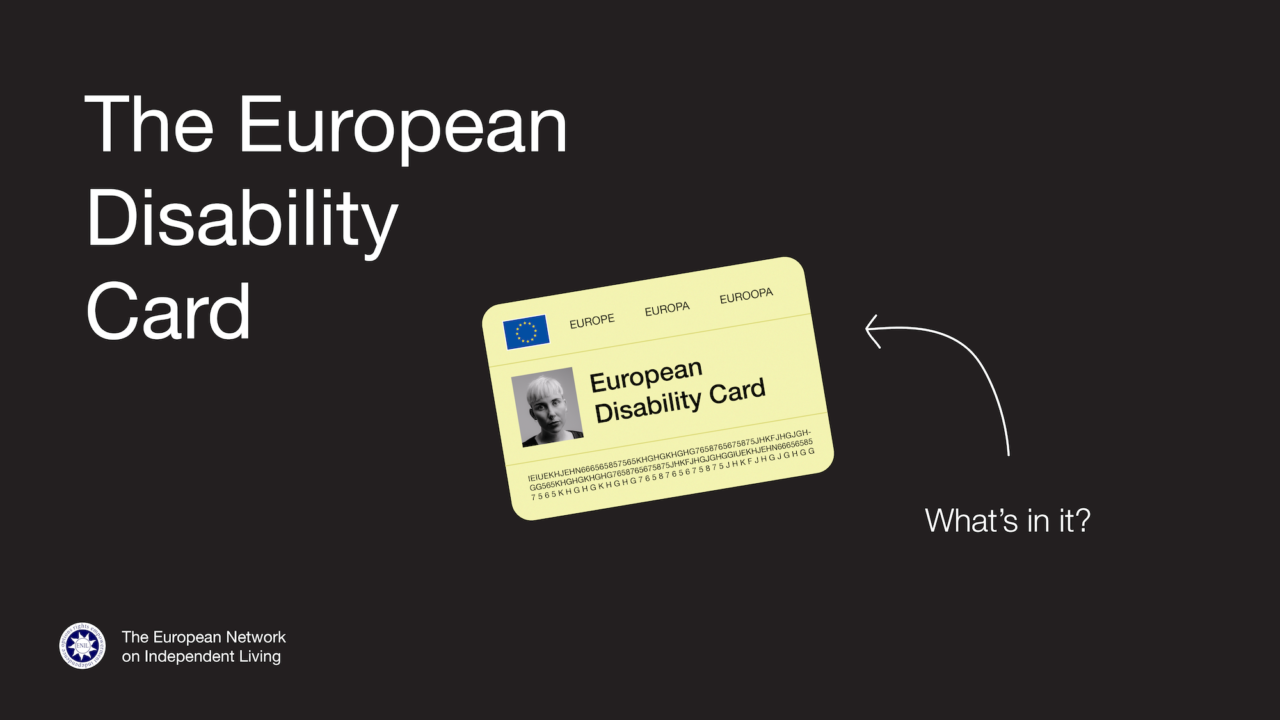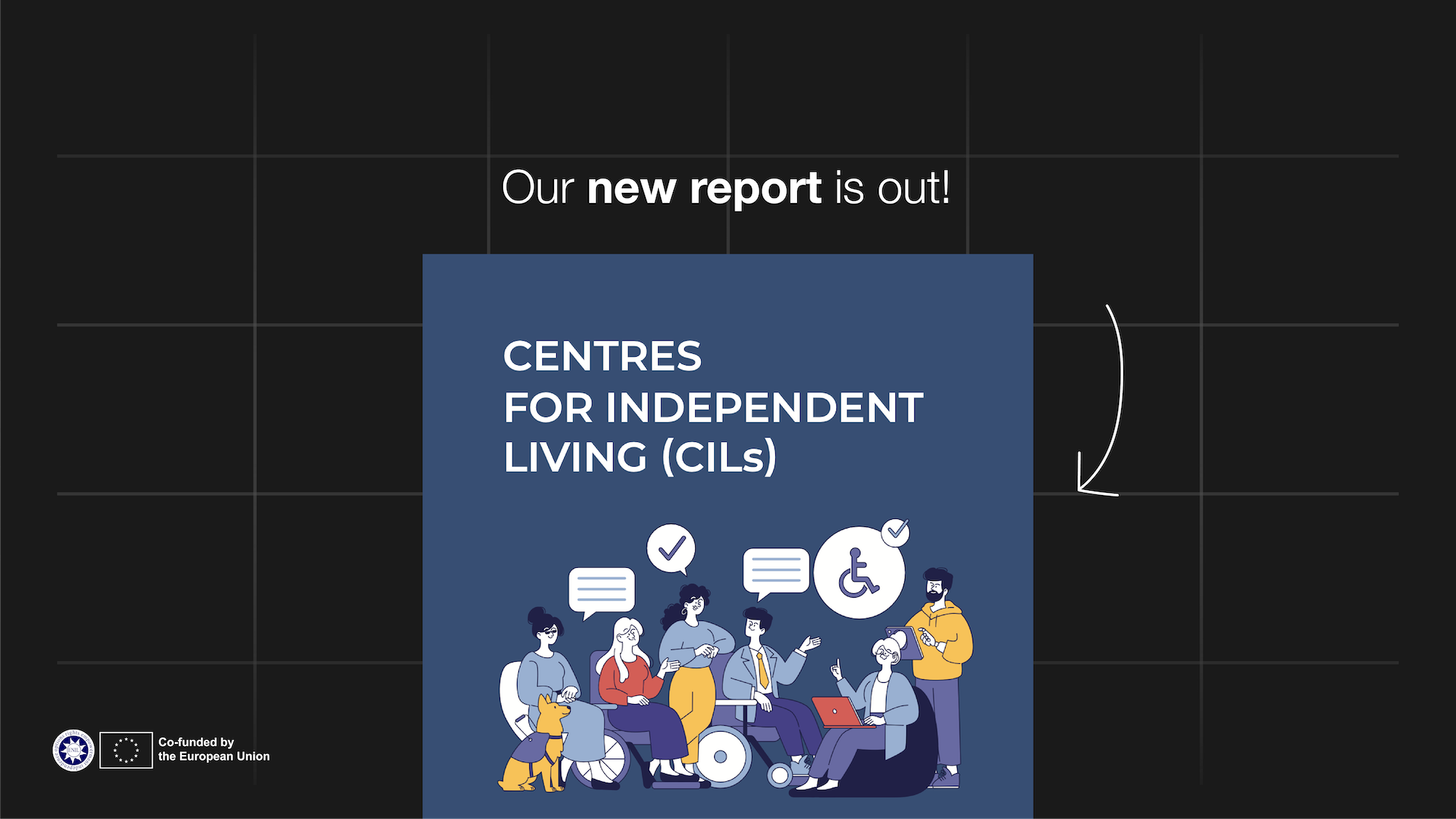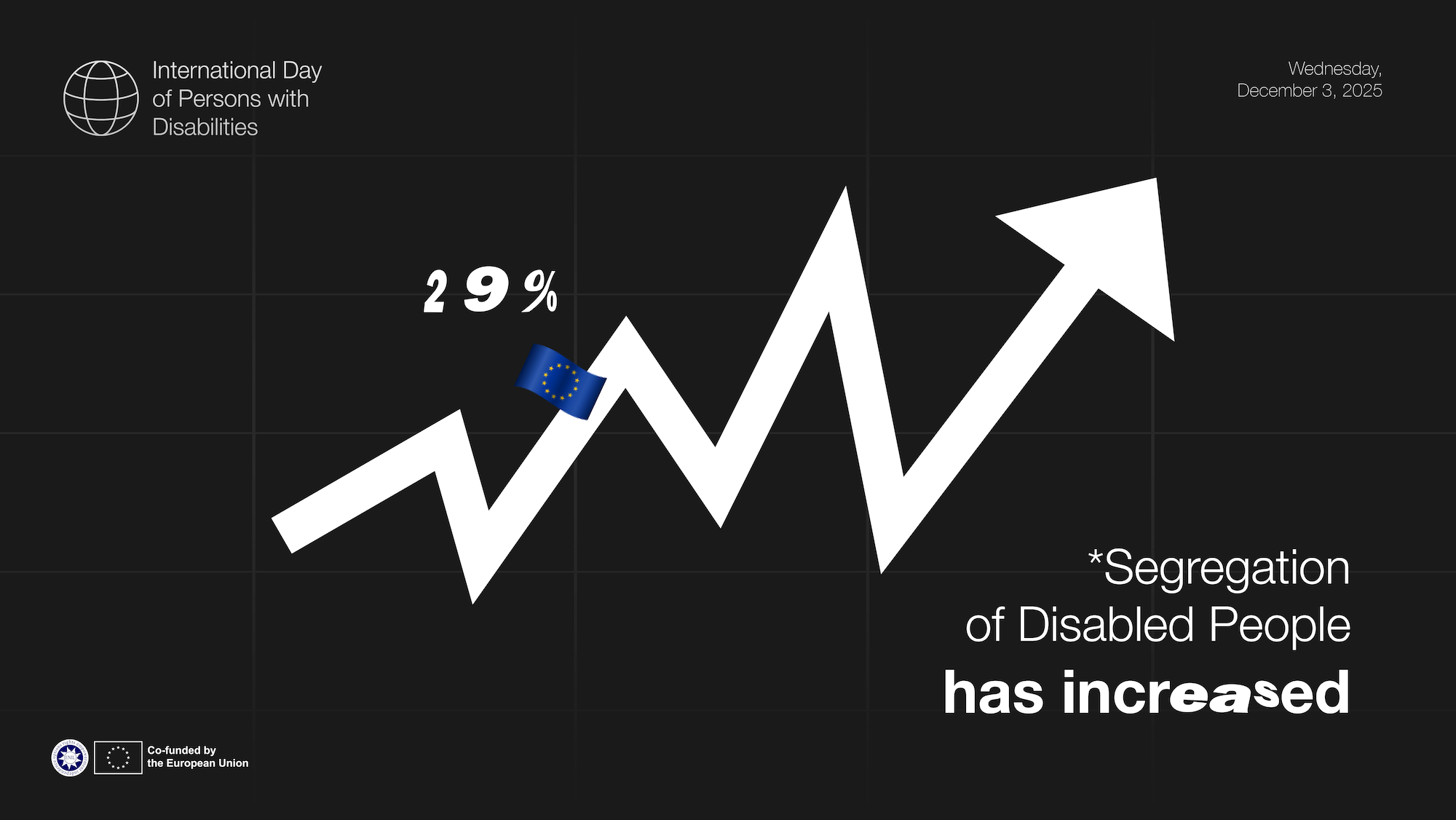To become law the European Disability Card as some more steps to complete. Already now it is possible to evaluate the results and draw conclusions.
By Florian Sanden, florian.sanden@enil.eu
On the 24th of April the European Parliament adopted the proposal for a directive establishing the European Disability Card and the European Parking Card for persons with disabilities. To become a law, the legislation still needs approval by the national governments in the EU Council and translation into all 27 EU languages. Only then can it be published in the official journal of the European Union and enter into force.
Since approval by the EU Council is at his stage just a formality, we can already evaluate the outcome. Some of the results can be deemed a success, others leave room for improvement.
The good news
First of all, the adoption of the Disability Card and the Parking Card is a success. It took 15 years of lobbying by disability advocates to make those cards a reality. Many remained sceptical until last.
Holders of a Disability Card will receive special conditions or preferential treatments offered by private or public providers of services to disabled people. Examples include “free access, reduced tariffs, reduced fees or user charge for toll roads/bridges/tunnels, priority access, access to restricted traffic and pedestrian zones, priority seating on public transport”. From the text of the directive, it does not become clear which types of services will be covered exactly. Article 2 on the scope refers to services within the meaning of Article 57 of the Trea-ty on the Functioning of the EU (TFEU) which does not help. However, the legislation obliges national authorities to set up websites providing further information and to encourage provid-ers of services to make the special conditions offered to disabled people publicly known. It is likely that price reduced tickets to the cinema, to concerts or football matches will be among the benefits. Preferential treatments offered to disabled people from the same country, have to be offered to holders of a European Disability Card.
We know for certain that public transportation is among the services covered. If there are free or price reduced tickets for buses or trains in a country, you will be allowed to benefit if you are a cardholder. Also, all special conditions have to include personal assistants or a friend or family member supporting you. In other words, if you get a reduced ticket to the cin-ema, so does your assistant. In addition, cardholders will have the right to be accompanied by an assistance animal.
Holders of a European Parking Card, will receive “equal access to any parking conditions and facilities offered to or reserved for persons with disabilities in that Member State”. In other words, if a country offers parking spaces reserved for people with reduced mobility, you will be allowed to use them too, if you are in possession of a parking card.
An important lobby success
Second, there are important articles of the directive which were added due to ENILs lobby work. For example, in comparison to the original draft, the text agreed between the EU Parliament and the Council, contains important new provisions on the involvement of representative organisations of persons with disabilities. That is a change ENIL lobbied for strongly.
Article 10 a states that Member States are to ensure “the active consultation and involvement of representative organisations of persons with disabilities in the development, implementation and evaluation of both the European Disability Card and the European Parking Card. Article 11 stipulates that the European Commission “shall consult persons with disabilities and their representative organisations” before adopting delegated acts. Article 16 obliges the Commission to carry out an assessment of remaining gaps relating to the free movement of disabled people. This report “shall take into account the viewpoints of … organisations representing persons with disabilities”.
These provisions should ensure that disabled people´s organizations will be involved in all the many steps that have to be completed so that the directive can enter into force and afterwards achieve its objectives. That is because first, each Member State will have to transpose the disability card legislation into national law and second, because EU regulations and directive are subject to regular monitoring and reviews. Our contribution will thus be able to make an important difference.
The bad news
Third, unfortunately it was not possible to achieve important objectives which would have contributed greatly to dismantling a key barrier blocking the ability of disabled people to move between EU countries. Both the Disability and the Parking Card will only be valid for stays of up to three months, unless the holder participates in an EU mobility program like Erasmus+ or the host country decides to extent the validity voluntarily. More importantly, there will be no cross-border recognition of access entitlements to disability specific services like personal assistance. Disabled people with support needs who are beneficiaries of such services can be granted access in other EU countries. For that to happen, the national disability assessment and personal assistance eligibility procedures will have to be completed, processes which can take years. Introducing an automatic cross-border recognition of access entitlements in this area would have made it possible for disabled people with support needs to move to other countries for work and studies. Despite lobby work from the European Disability Forum, ENIL and the support of the European Parliament, national governments could not be moved to accept such changes.
On the other hand, it was clear from the beginning that Member States would not budge when it comes to opening social services. From ENILs´ side the proposals were introduced to vitalise the debate and expose opposition.
What is really disappointing is the absurdly long implementation period. Member states reserved themselves 45 months to complete this work. The Disability Card and the Parking Card will only become available in four years from now.
Further work
ENIL will offer a comprehensive online debriefing on the new Cards in June. We will continue working with the European Commission to ensure we will be involve in the implementation work as promised.



